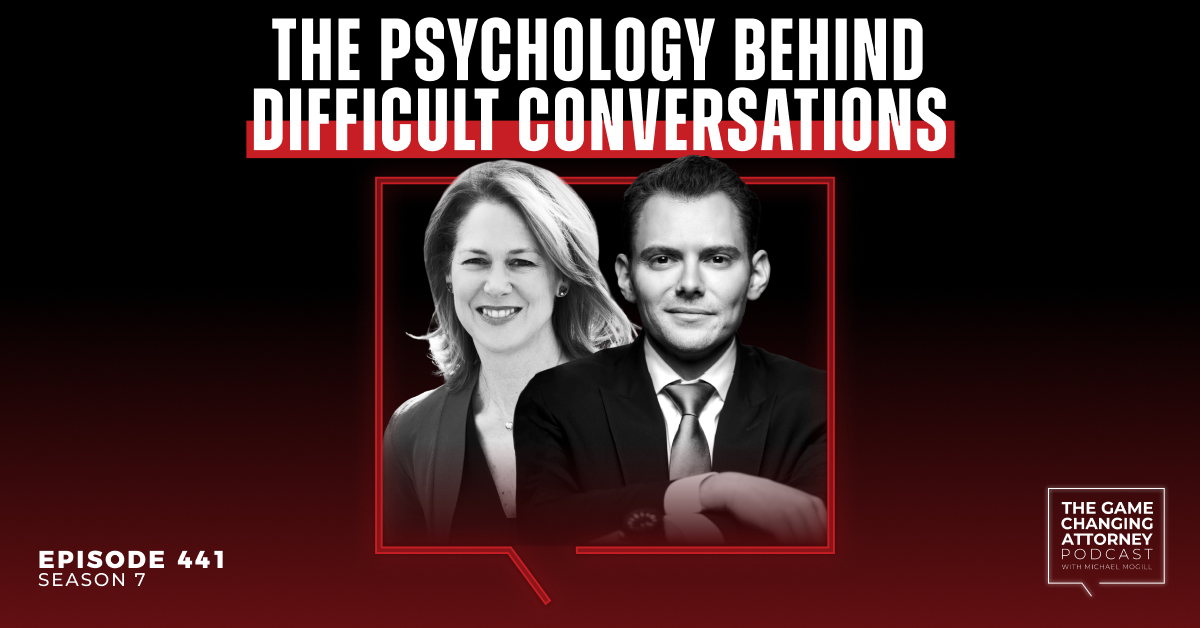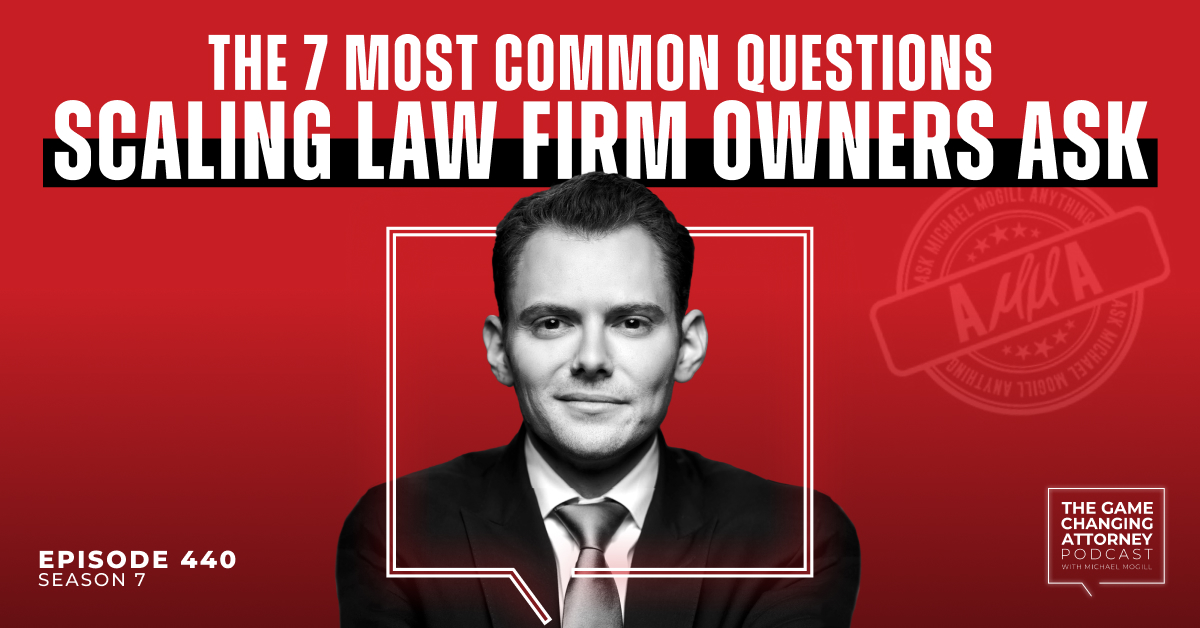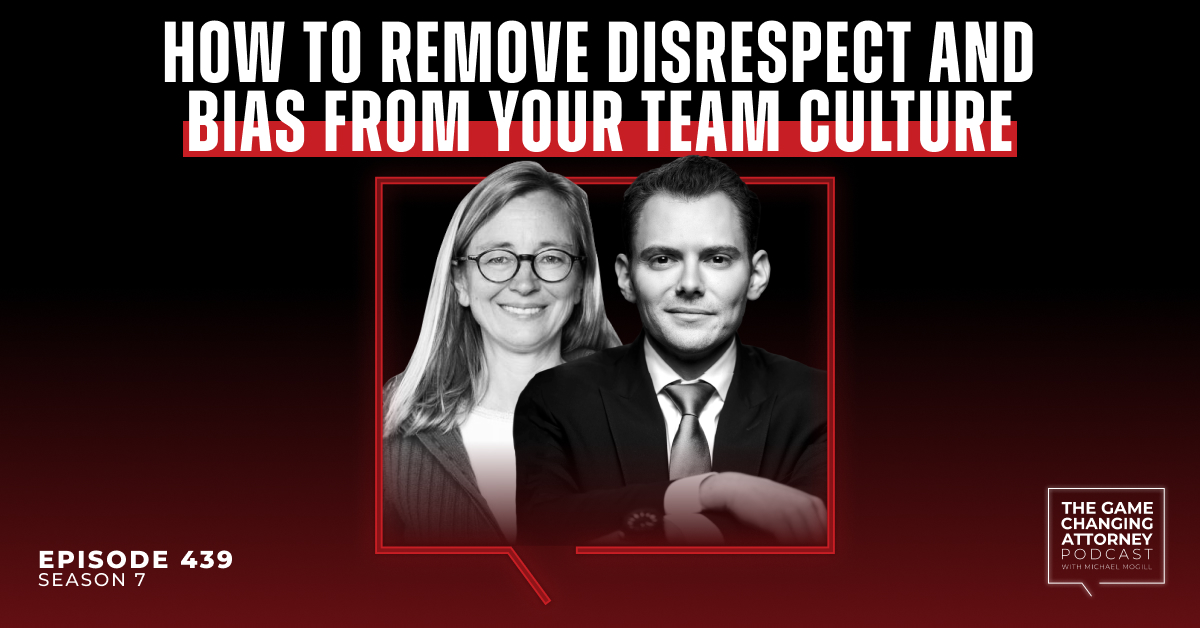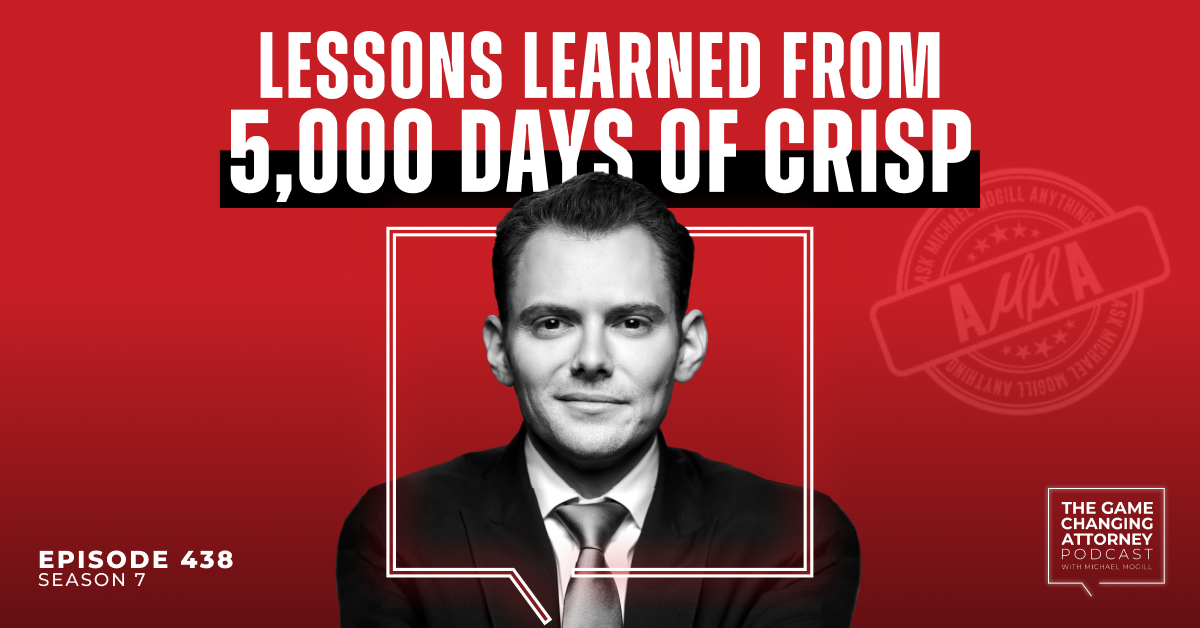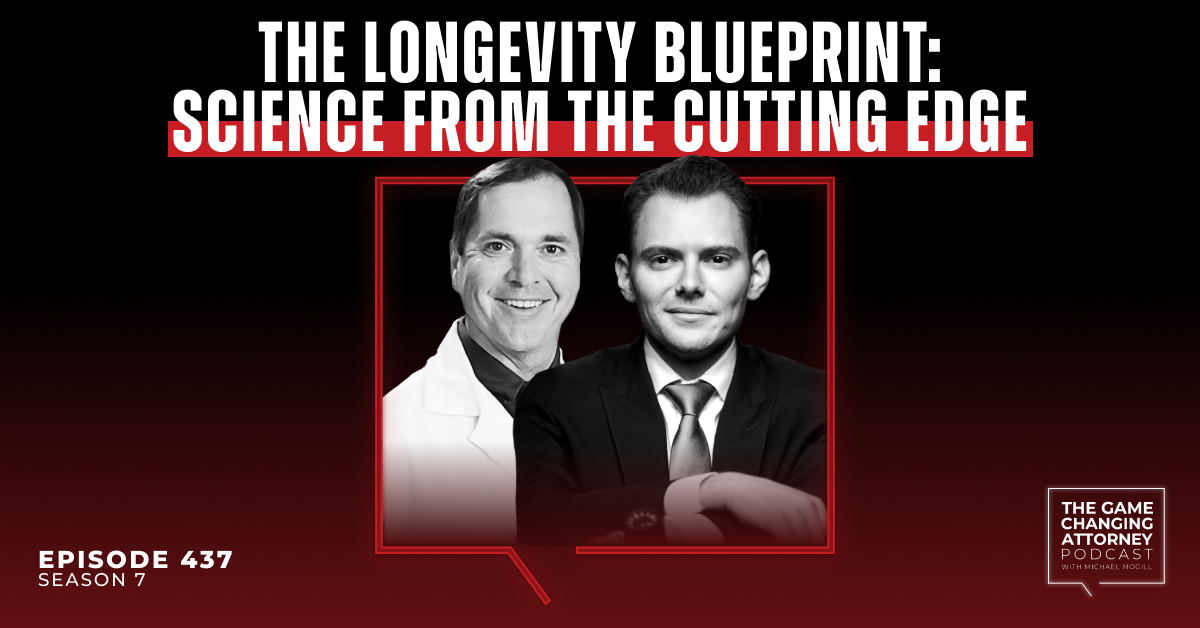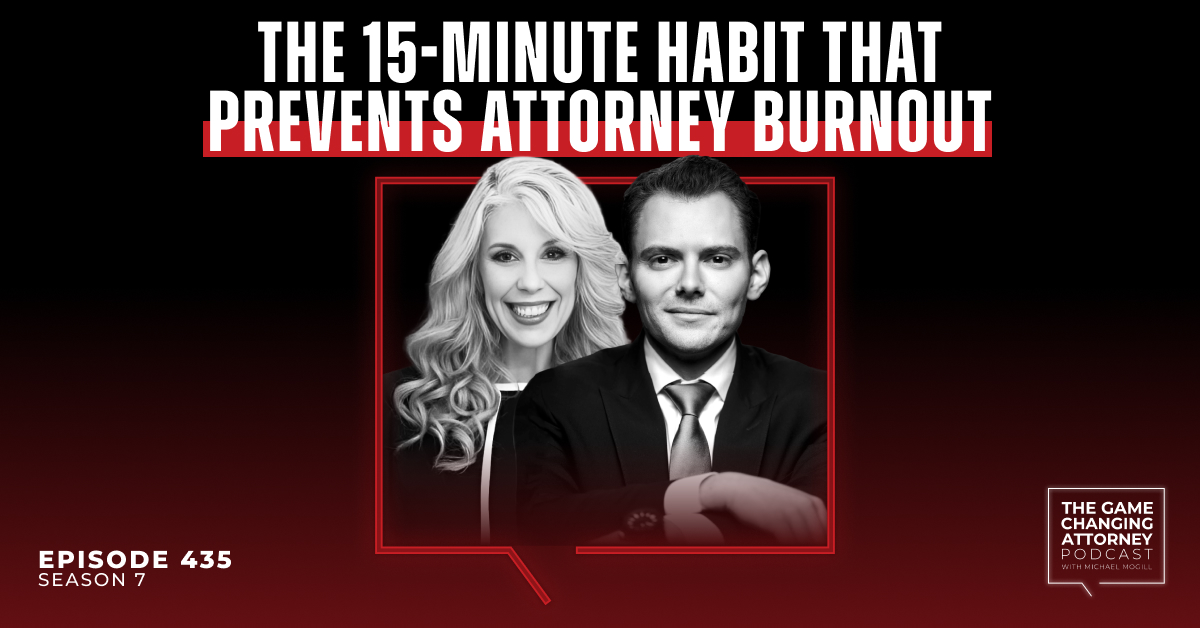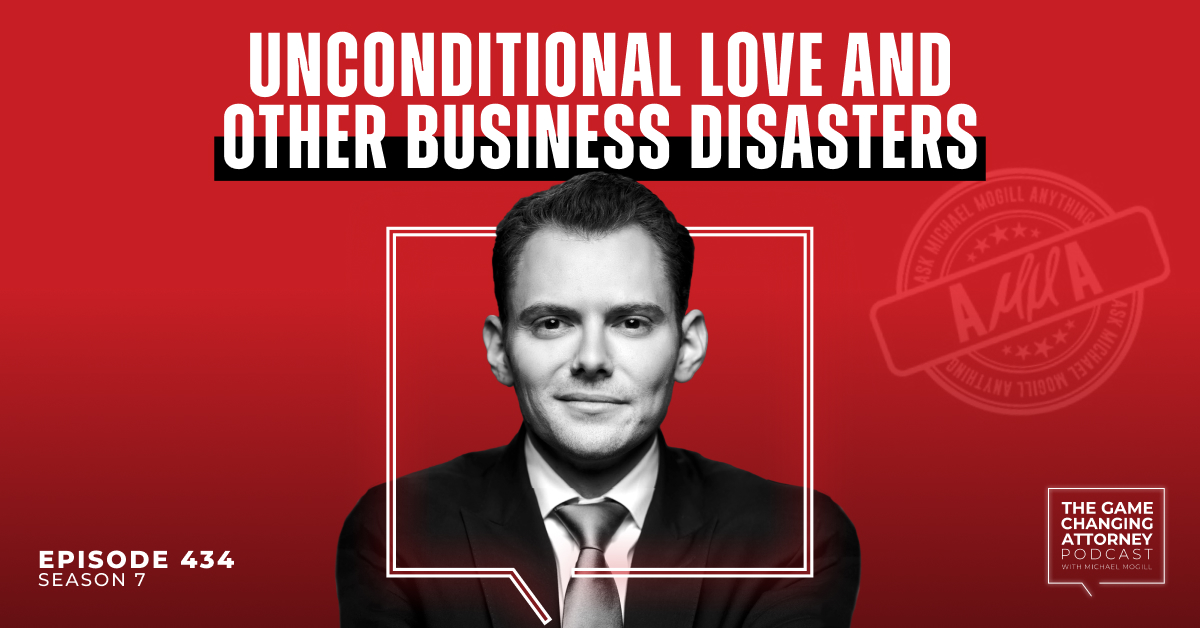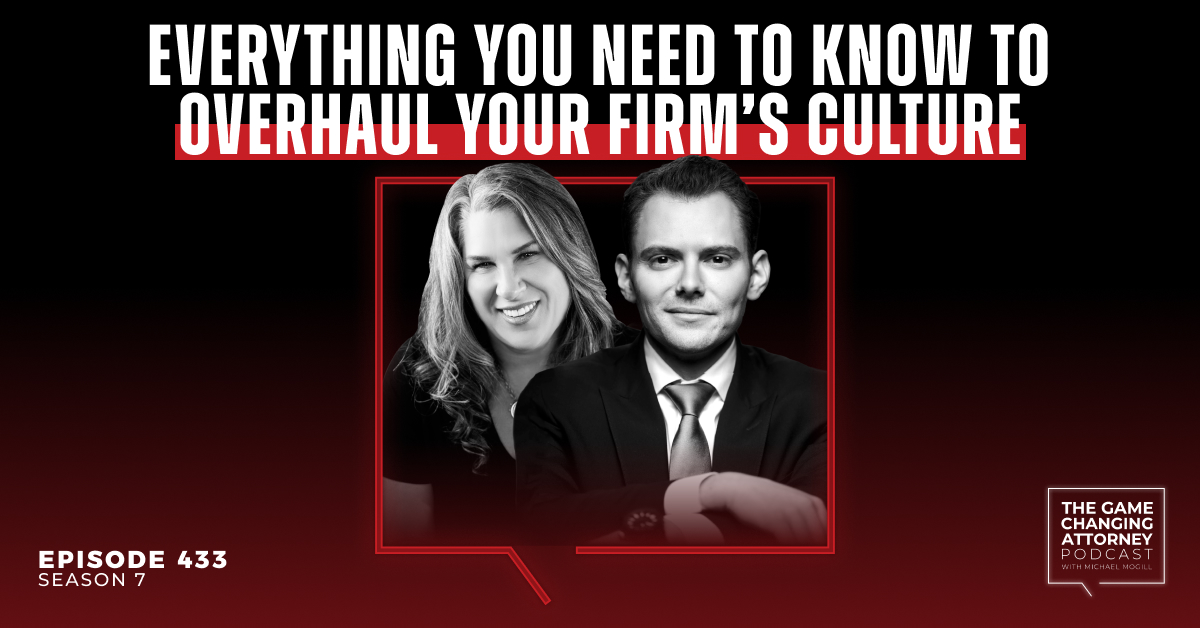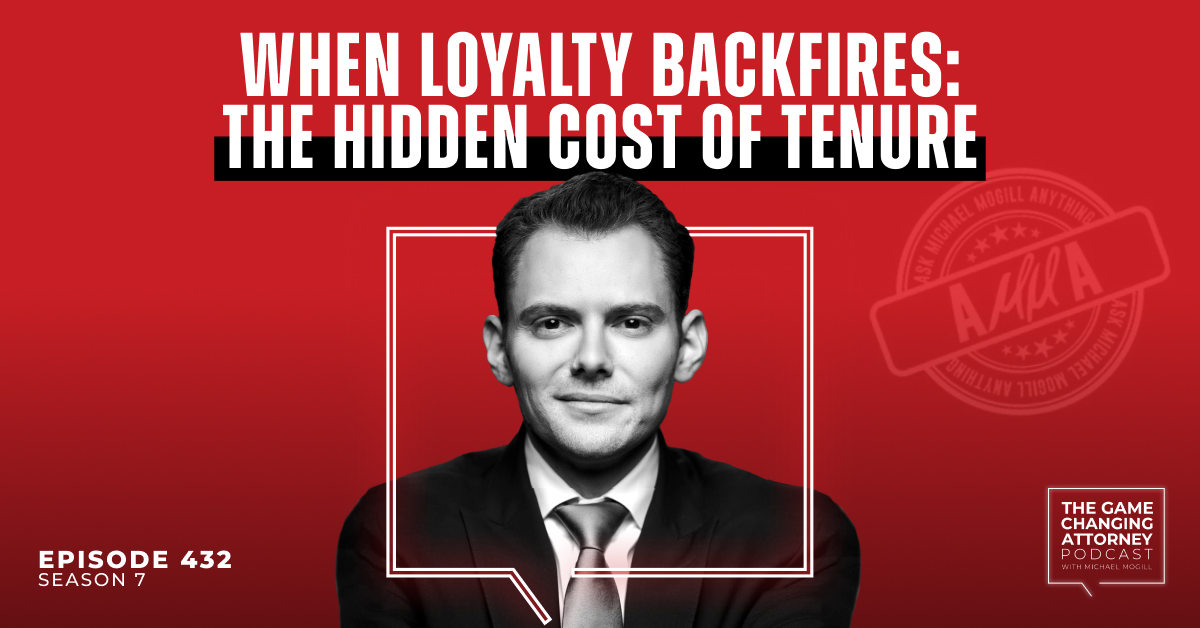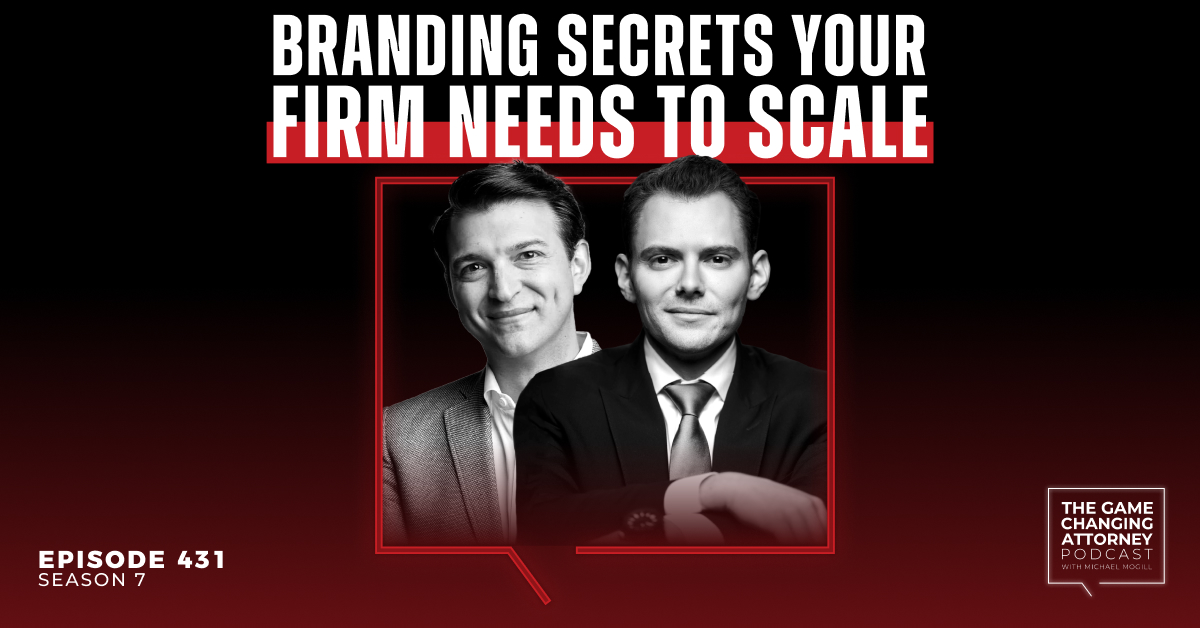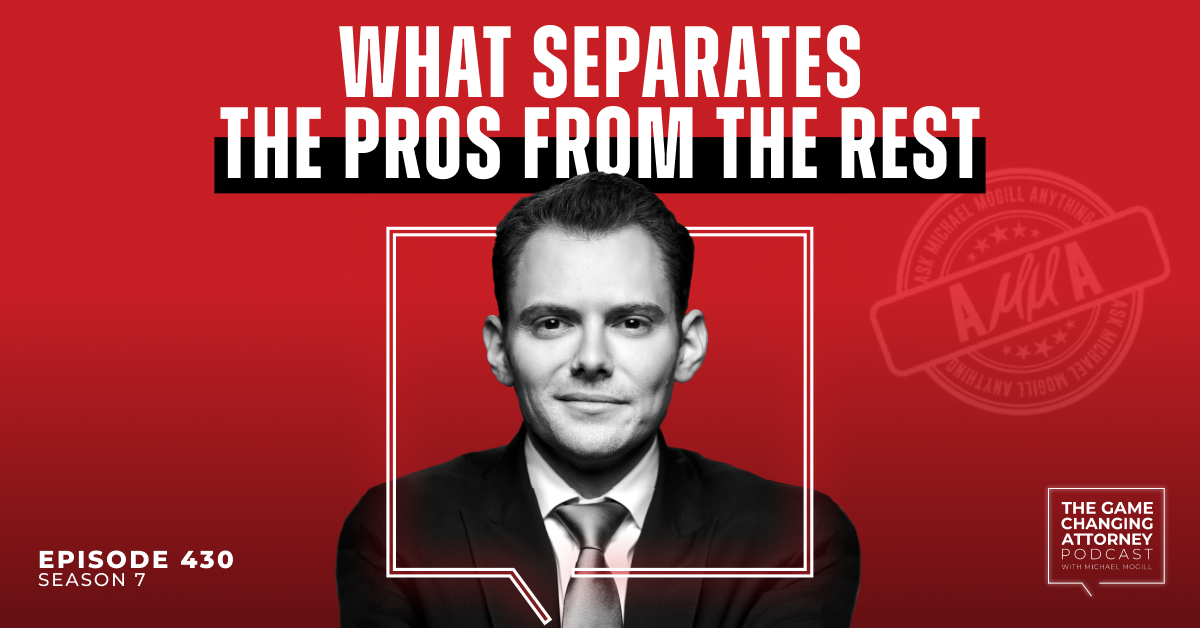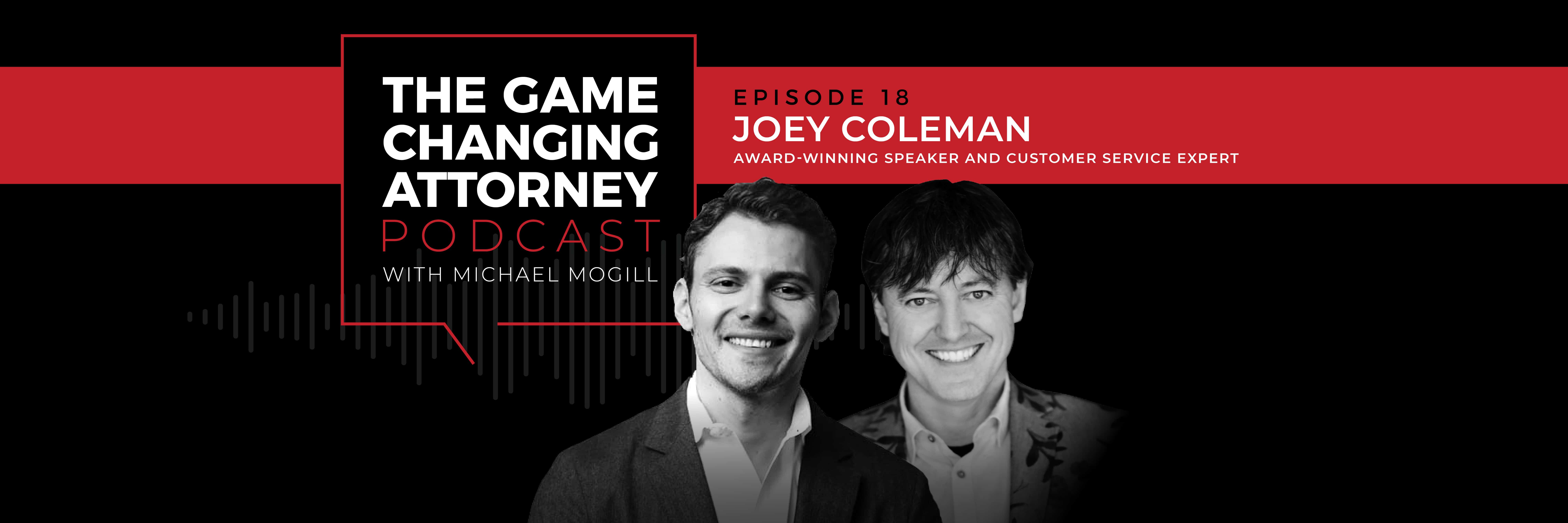
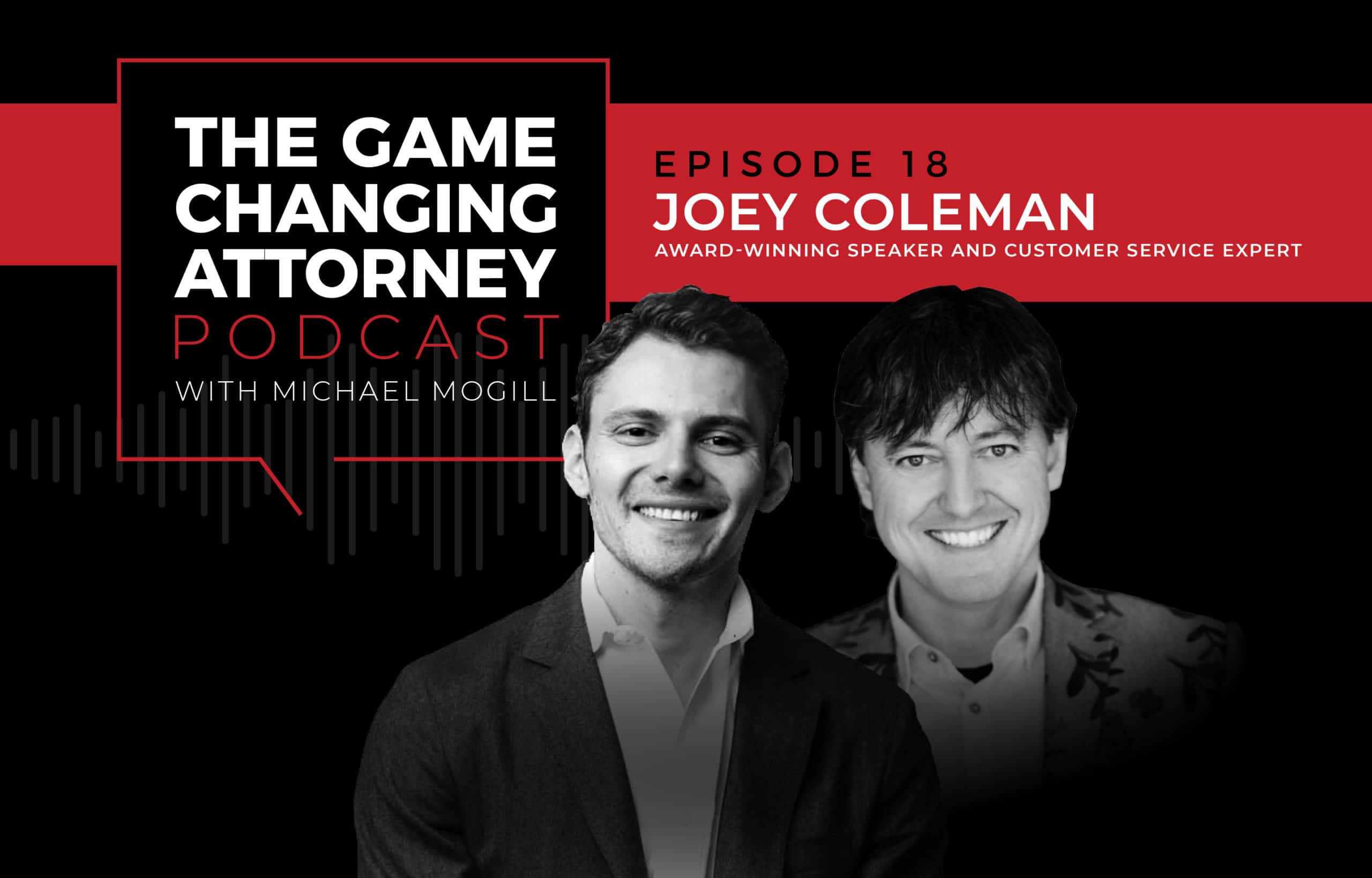
EPISODE 18 — Joey Coleman — Never Lose a Client Again: Creating Memorable Experiences to Gain an Advocate for Life
For nearly 20 years, Joey Coleman has helped organizations retain their best clients and turn them into raving fans. But he wasn’t born an expert on client experience. Believe it or not, Joey honed his communication skills in the courtroom as a trial attorney.
According to Joey, all attorneys got into law first and foremost because they wanted to help people — to protect, defend, support, and encourage their clients. That’s why delivering a world-class client experience should be a total no-brainer.
In this episode of The Game Changing Attorney Podcast, Joey buckles down to answer the tough questions every law firm owner must face:
- How can law firms compete with the likes of Amazon and Netflix in terms of client experience?
- Why does every client automatically feel buyer’s remorse (and what can you do about it)?
- What DON’T you learn about client experience when you sit the JD?
- How can you really turn attorney-phobic clients into powerful advocates of your law firm?
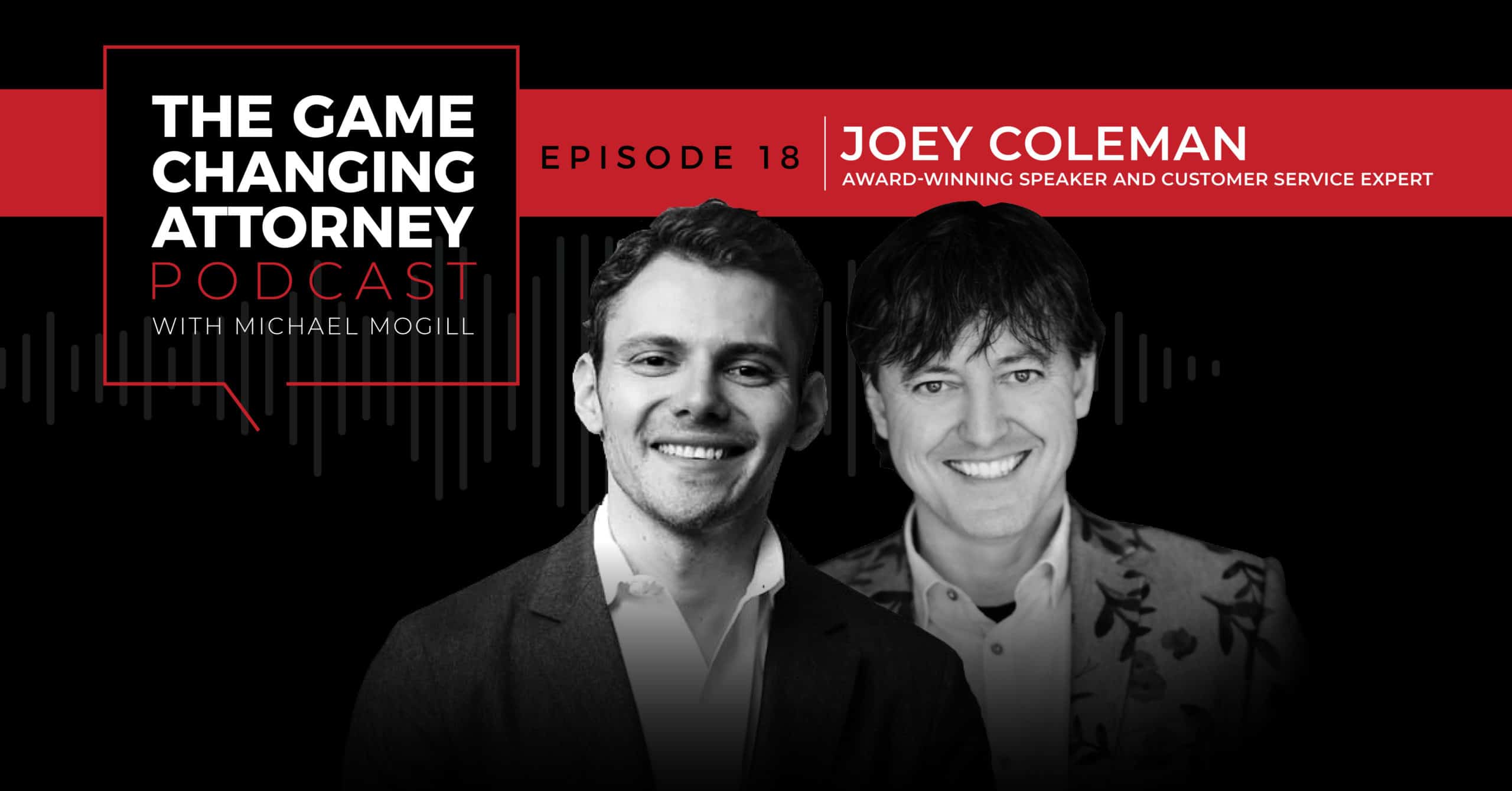
Listen & Subscribe
Show Notes:
2:00 – A man of many talents. “I grew up the son of a criminal defense lawyer, so my first time at a counsel’s table, I was in sixth grade when I was a federal court courier and an antitrust at a case that my dad was trying. I grew up basically in that environment. I went straight from college to law school. After law school, I was a criminal defense lawyer for a while, was a business consultant, went back to being a criminal defense lawyer, and then worked selling promotional products. I was a teacher at the postgraduate level. I started and ran an ad agency. I had my stint, as you mentioned, with the Secret Service, with the White House and with the CIA. Some amazing experiences, but the thread that ties all of these together — some people look at that and they’re like, ‘Jesus, this guy can’t hold the job,’ but there’s actually a method to the madness, and that is in each of those positions, the way that you succeeded was by having a keen understanding of the human condition.”
3:19 – A common thread. “In each of these positions, what I learned was even though they’re completely different industries, completely different worlds with completely different desired outcomes, there’s one common thread. The common thread is humans, and really what it allowed me to do is take the learnings from all of those and combine them into this discussion of customer experience and employee experience. You know, what are your customers doing, what are your employees doing, what would you like them to be doing, and how can we use different tools and techniques to increase the likelihood that our desired outcome actually happens?”
6:09 – Why you must retain clients. “Number one, we need to recoup our marketing costs. If we don’t keep a client long enough to recoup our marketing costs, we’re in the hole for that client. Number two, the longer we keep a client, the more profitable that client becomes. Why? Well, because we recouped all of the onboarding cost in addition to the marketing costs, and as our team, whether that’s our associates or partners or paralegals or support staff, as they work more and more with a client, they become more efficient in dealing with that client’s matters. So as a result, each additional hour they bill is a more profitable hour than the previous ones billed because we’re already up to speed on the project, even though in most firms there isn’t a sliding scale that says, ‘Hey, the longer you’ve worked with us, the less you pay.’ That’s not usually the way it works. So the moral of the story is, if we can stretch a client for one more engagement or one more referral, the incremental impact on the bottom line of our business is incredible.”
7:41 – Referrals are indispensable. “Not only do referrals come in at a much lower cost in terms of a regular marketing engagement to get a client, but as a general rule, if you treat your clients well and you teach them how to make qualified referrals, the referrals that come in are pre-framed — the sales process is exponentially easier because they already know what to expect, they already know generally what it’s going to cost them, and again, the profitability per client increases, not to mention the word of mouth.”
9:17 – A missed training opportunity. “Why is it that we don’t take a course in law school on the law school version of bedside manner? You know, we have no problem lambasting medical professionals and saying, ‘How can you spend all this time in medical school learning all about how to treat people, but not learning anything about how to treat people?’ The same applies to lawyers. We don’t take classes in law firm practice management, we don’t take classes in how to manage our employees, we don’t take classes and how to communicate with our clients — other than ethics, which usually is a semester long you have to take it in order to graduate — and there might be three or four cases in that entire semester where you talk about the attorney who didn’t properly keep their client informed. You know, the lawyer who didn’t do a good job communicating with their client, and that’s it.”
11:13 – Reconnecting with our purpose. “I think at the end of the day, what we’re called on to do is think differently about the experiences we’re creating for our clients. And when we do that, not only does it impact our bottom line and make our staff happier, but it allows most of us to reconnect to why we got into practicing law in the first place.”
13:31 – A new kind of competition. “In 2020 and beyond, you’re not being compared to other lawyers. You’re being compared to Amazon and Netflix and Apple and Tesla and Facebook and all the brands that your clients interact with who have focused on delivering a seamless 24/7, 365, anticipatory, convenient relationship that is all wrapped in how you feel and designed to make you feel a certain way. So that’s what the competition is.”
15:30 – Make someone responsible for the client experience. “There are people in your firm who understand this client experience stuff better than you do, who would love to be involved in a project or initiative to enhance the client experience. They’re just waiting for the invitation. So don’t worry if you roll this out — ‘Oh, how are we going to get anybody involved?’ — If you genuinely make it available and you put the resources in the time behind it, you will have employees come out of the woodwork. I think it’ll surprise you.”
16:15 – Actions speak louder. “First impressions are lasting impressions, and I don’t care what you say — I care what you do. And you can tell me you are world class and amazing and incredible, but if you’re not actually delivering on that, there’s a major problem.”
18:19 – The buyer’s journey isn’t linear. “I believe that the journey has eight distinct phases, and those phases walk the client through the different emotional states they will have as they start to get to know you, as they work with you, as they work towards the resolution of their case, and then ideally on the back end, what are you doing to cultivate these adopters and advocates — the people who are loyal and committed to you and the people who are singing your praises far and wide? If we do that right, they then rinse and repeat. They come back to bring you a new case or a new project or a new initiative, and you run them through the cycle again.”
25:48 – Thoughts on premature referrals. “Clients refer after you’ve proven yourself. In the same way that you don’t make referrals to any product or service you use until you know it works, until you feel confident that it works every time, and then and only then will you put your reputation on the line to recommend somebody buy a product or a service. Your clients are human, too. They’re just like you.”
26:21 – This is not the easy road. “It is a lot of work, but so is being a lawyer. You didn’t sign up for this profession because you wanted the easy path. Good golly, if you wanted the easy path there are about 20 different professions you could have chosen other than being a lawyer that would have been a lot easier. Number two, while it does sound like a lot of work, one of the things that is implicit in the way that I teach this and the way I write about it and the way I’ve constructed this, is a system that is replicable — because at the end of the day, if you don’t have systems that you can execute on consistently, stop deluding yourself; you don’t actually have a business. You think you have a business, but what you really have is an expensive hobby. Unless you have systems and processes in place, you’re not going to be able to deliver on this.”
31:12 – Show that you care. “In 2020 and beyond, human beings are dying for proof that they matter. It’s why we see people flock to social media and count the number of likes they get. People are dying for proof that their thought, their idea, their presence on the planet has any significance. And when you take the time to write a handwritten note, what it says is: number one, you were willing to slow down. Number two, you’re willing to go find a pen and paper — these archaic communication tools — to actually physically write something out, and then you were willing to take that letter and put a stamp on it and take it to the post office and the post delivery person was able to bring it to your home. There are these built in understandings when somebody receives the note that you actually care. You actually give a darn about them.”
35:55 – Righting wrongs is worth it. “I think most of the research would show that when in doubt, the experience trumps the result. And we only need to look at our own personal lives to see how that works, right? When we are working with a brand or a business and something goes wrong and they fix it and make it better, we actually like them more than if nothing would have gone wrong from the beginning. So when people get nervous about something going wrong, here’s the thing, friends: if something goes wrong and you correct it, you’re actually in better standing than if something hadn’t gone wrong in the first place.”
39:47 – Your team must have the proper tools. “It is impossible to ask our employees to deliver and to create a remarkable experience for our clients if they don’t know what one is, if they have no context for what a remarkable experience is. They can’t be expected to deliver on it.”
41:44 – Focus on the employee experience. “Your employees have not had the same life experience as you. They have probably never been picked up in an airport by somebody with a sign with their name on it. They have probably never been sitting in first class sipping a mimosa while the rest of the plane boarded. They have probably never stayed at a five star hotel or eaten at a Michelin star restaurant or had a private tour of an art gallery after hours or had a personal shopping experience. The things that many of you listening have experienced in your life are completely foreign to your staff. So one of the things you can do as an employer is to start to look at the experience you’re giving to your employees and see if it is of the caliber of the experience you’re hoping they will deliver to your clients — because if it’s not, as the old saying goes, ‘You ain’t going to get there from here.’ It’s time to focus on the employee experience.”
45:08 – What does being a game changer mean to you? “I think being a game changer is refusing to accept the standard for success that is today. I don’t think it’s enough to say, ‘Yeah, but I’m better than other lawyers.’ Stop that! That’s not a game changer. That means you have the ante up chips to sit down at the table and get dealt a hand. Okay? I would love it if on the list of Tesla, Amazon, Google, Apple, Facebook, Netflix — the brands that were creating experiences that everybody’s talking about — your law firm was in that name. Now I know that seems like a crazy stretch, but I absolutely believe it’s attainable. The bar for client experience in the legal profession is lying on the ground. Literally all you have to do is not trip over it. You have to lift your foot instead of dragging your foot to step over what the standard is for client experience, especially the US legal system. I think there is huge possibility.”
EPISODE RESOURCES
Frederick Reichhelt
American Bar Association
Never Lose a Customer Again by Joey Coleman
Ritz-Carlton
Joey has generously offered to give away a free First 100 Days® Implementation Kit designed exclusively for lawyers. This kit is designed to help you grow your business, enhance your client interactions, and increase the number of referrals you receive. This exclusive resource will walk you through the 8 phases of the client journey and use the 6 tools that Joey believes are the secret weapon to communicate with your client across these 8 phases. Download free here.
Connect with Michael
- Text directly at 404-531-7691
